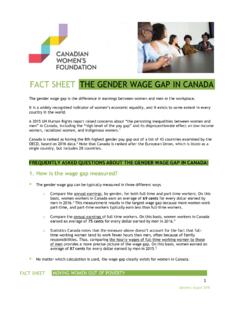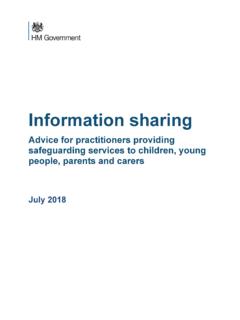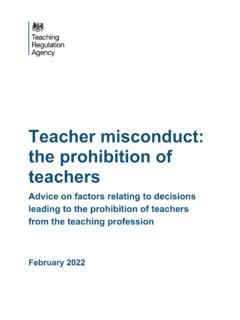Transcription of Relationship Violence, No Way - Relationship Violence ...
1 Handout: Relationship Violence No Way Program Relationship Violence prevention Questionnaire The following questionnaire explores abusive behaviour by males to females in heterosexual relationships because of the clear recognition that most domestic Violence occurs by men to women. abusive behaviour can occur in heterosexual or homosexual relationships and women can act abusively to men and other women in relationships. Is a man acting abusively Tick the appropriate space. Definitely Maybe Not abusive abusive abusive He punches, pushes or scares his partner?
2 L---------------------------l----------- ----------------l He insults his partner? l---------------------------l----------- ----------------l He ignores his partner? l---------------------------l----------- ----------------l He gets really angry over small things? l---------------------------l----------- ----------------l He refuses to share housework or childcare? l---------------------------l----------- ----------------l He is jealous or possessive of her? l---------------------------l----------- ----------------l He doesn t like his partner seeing her family and friends? l---------------------------l----------- ----------------l He doesn t pay his fair share?
3 L---------------------------l----------- ----------------l He is disrespectful of her possessions phone, car etc? l---------------------------l----------- ----------------l He tells his partner what she can and can t wear? l---------------------------l----------- ----------------l He calls, messages or inboxes his partner all the time? l---------------------------l----------- ----------------l He pressures his partner to have sex? l---------------------------l----------- ----------------l Handout: Relationship Violence No Way Program Relationship Violence prevention Project definition abusive behaviour in relationships is any Violence or abuse in a Relationship where a person is hurt or treated in ways that they feel unsafe, restricted, put down, or kept under control emotionally, physically, sexually, socially, culturally, spiritually, legally or financially.
4 87% of reported Relationship Violence takes place in heterosexual relationships where the man is the perpetrator and the woman is the victim but abusive behaviour can occur in homosexual relationships (10% of reported incidents) and women can act abusively to men (3% of reported incidents) in relationships. Handout: Relationship Violence No Way Program Relationship Violence prevention Myths and realities about Relationship Violence Myth Domestic Violence doesn't happen very often. Reality As many as one in three women in Australia may experience domestic Violence sometime in their lives. Myth Relationship Violence only happens to older women who live with their partners.
5 Reality One in eight young women will have been in an abusive Relationship before they leave high school. Myth If there s no injury, there s no Violence . Reality There may be no visible injury from physical abuse and abusive relationships may occur without physical assault. Abuse is about maintaining power and control and this may be done in many ways. Myth Alcohol and drugs cause domestic Violence . Reality Violence occurs without alcohol or drugs. Many people use alcohol and drugs without becoming violent. Alcohol and drugs are an excuse and not a cause of domestic Violence , but may be a contributing factor. Myth If he is sorry it means he has changed.
6 Reality Many people feel sorry for hitting their partner after the abuse. These feelings, apologies and promises to change are part of the cycle of Violence . This does not mean that he will not do it again. Myth people who are violent in relationships need to learn to manage their anger. Reality Anger is an emotion felt by everyone and very few people use it as an excuse for Violence . people who are violent in relationships are often able to conduct themselves non-violently in public, in the workplace and with other friends. Myth Violence is a part of culture. Reality No cultural group is more or less violent than another. Violence is a behaviour which people learn from one another and is unacceptable in any situation or culture.
7 How it begins and why people stay Often domestic Violence starts with a bit of a shove or a putdown and you may not give it much thought. Things get worse and you don t know what to do because: you think you are to blame for the abuse you think it s to do with your partner being under stress (due to work, school pressure, family etc.) you have dreams and hopes and you don t want the family to split up he s so nice to everyone else, you believe it must be you your friends or family keep saying you are crazy because you put up with it your friends or family don t believe that it is as bad as it is he apologises and says he will never do it again you love your partner you fear loneliness and believe you can t cope on your own you don t think your partner can cope on their own you don t want to separate your children from their father he has good relationships with the children so you stay .
8 Women who leave domestic/ Relationship Violence situations may sometimes return to their partner time and time again. This may be because their partner pressures or tricks them into returning; they are not prepared for life away from their partner and do not have enough support; or they feel guilty. It is important to be as prepared as possible when leaving a domestic Violence situation by making sure you have support. This can mean getting help from friends, family and through services in the community. (Adapted from the No-one Need Live in Fear Purple Booklet 2007 reprint) Handout: Relationship Violence No Way Program Relationship Violence prevention Explosion Remorse Build Up Nothing Resolved Cycle of Violence Most victims of domestic Violence experience the abuse as a part of a cycle with four phases.
9 Build Up The perpetrator s behaviour gets worse- from controlling and abusive to threatening and more violent. This might happen over the course of days or minutes. The victim will often feel as though she is walking on eggshells and fear that an explosion could occur at any moment. Explosion This is the most dangerous time- it can involve physical or verbal Violence , serious threats and destroying objects. The victim fears for their safety and might be shocked by the Violence . Perpetrators often blame other things for their behaviour, for example alcohol or their partner. Remorse The perpetrator may say he is sorry or feel remorseful and guilty for his actions.
10 He may believe and try to convince his partner that it will not happen again. The victim may believe their partner has changed and that it will not happen again. He may also make promises about how he will behave, as well as buying gifts for the victim and trying to make it up to her and/or the children. Often, he will blame his partner, children or other external factors such as stress or alcohol for the abuse rather than take responsibility for his actions. This can cause the victim to feel responsible for Violence . Nothing Resolved There may be some time where things are calm and seem to be better. In reality, nothing has changed and promises are not kept to make sure the Violence is dealt with and doesn t happen again.





